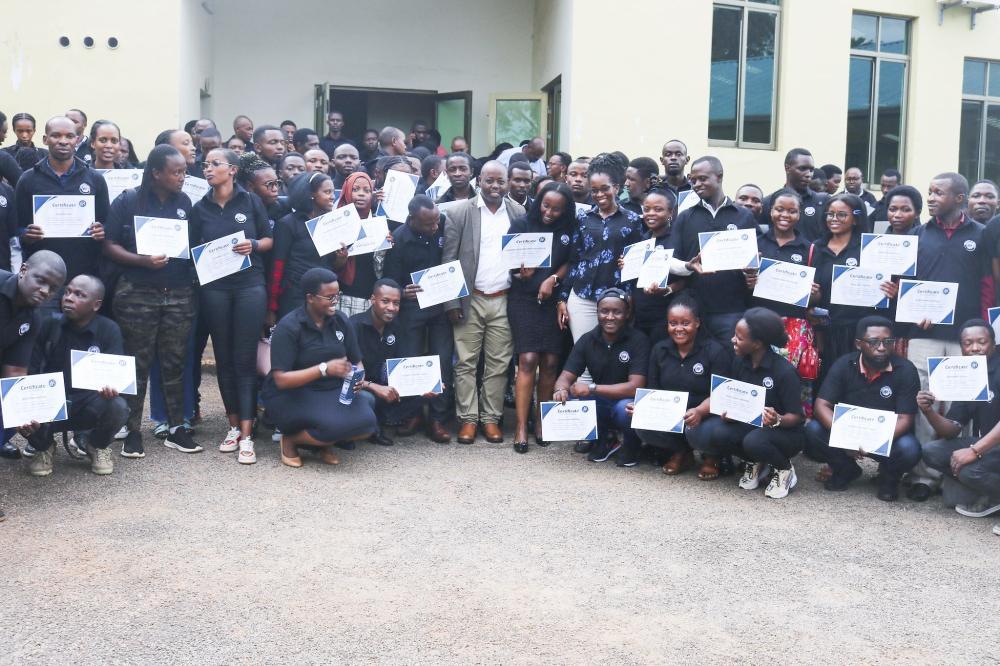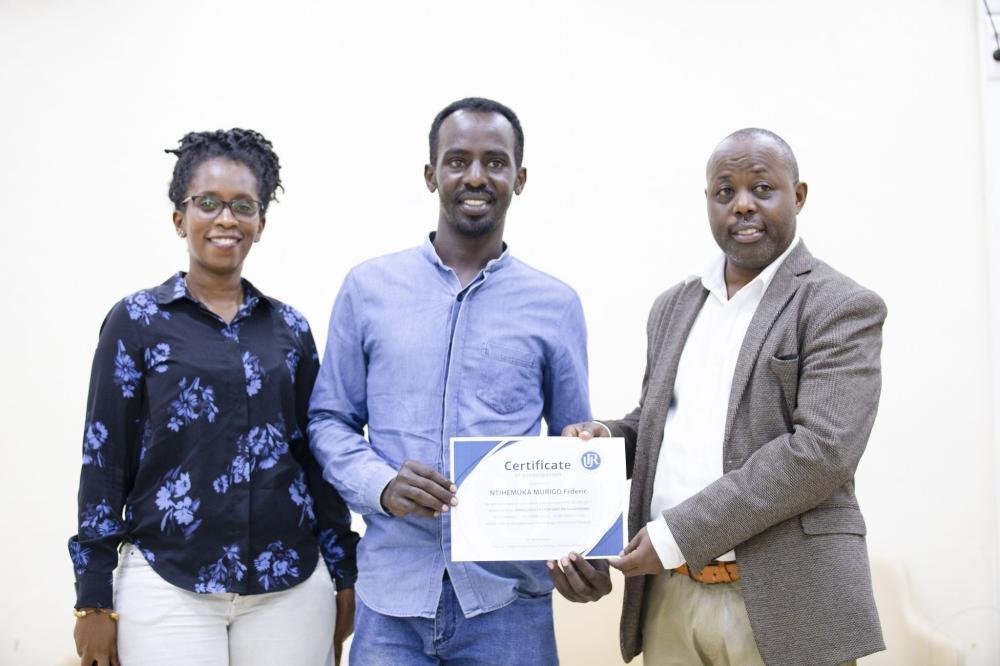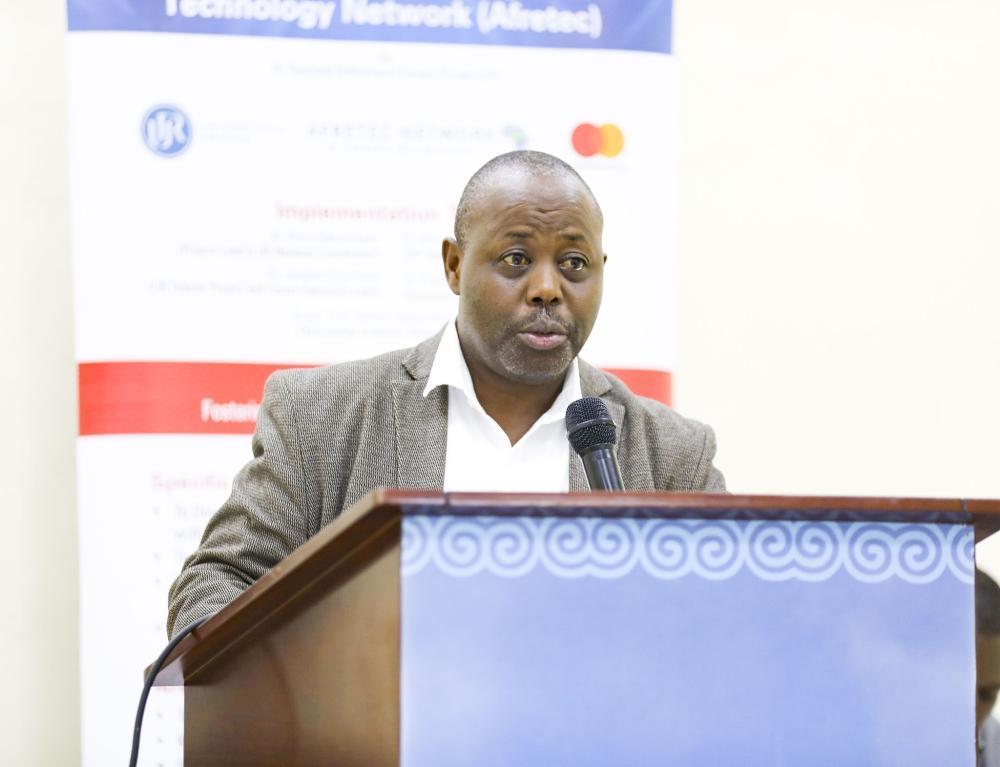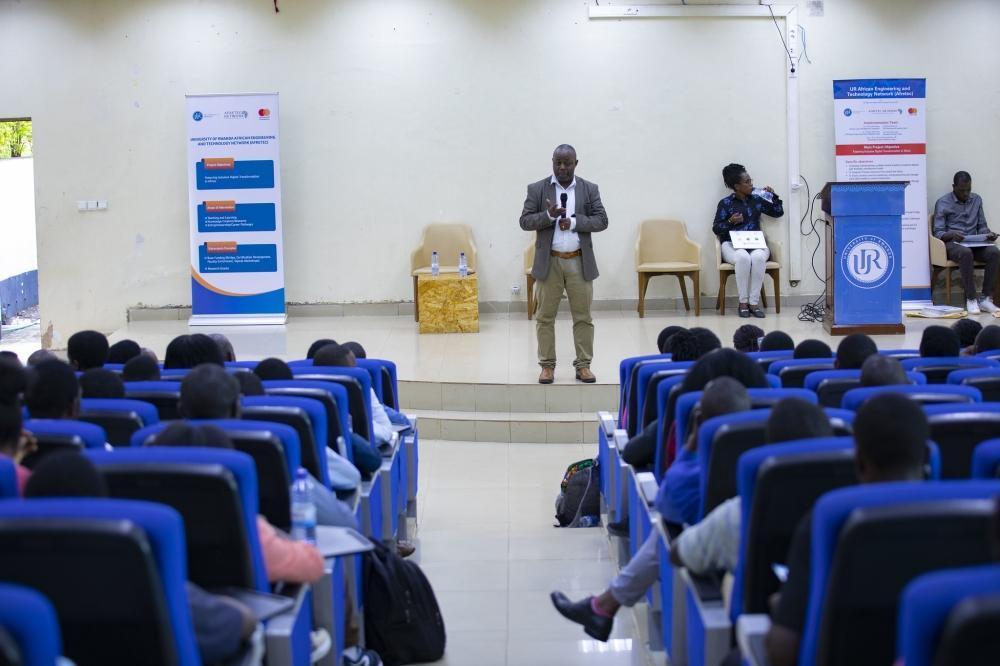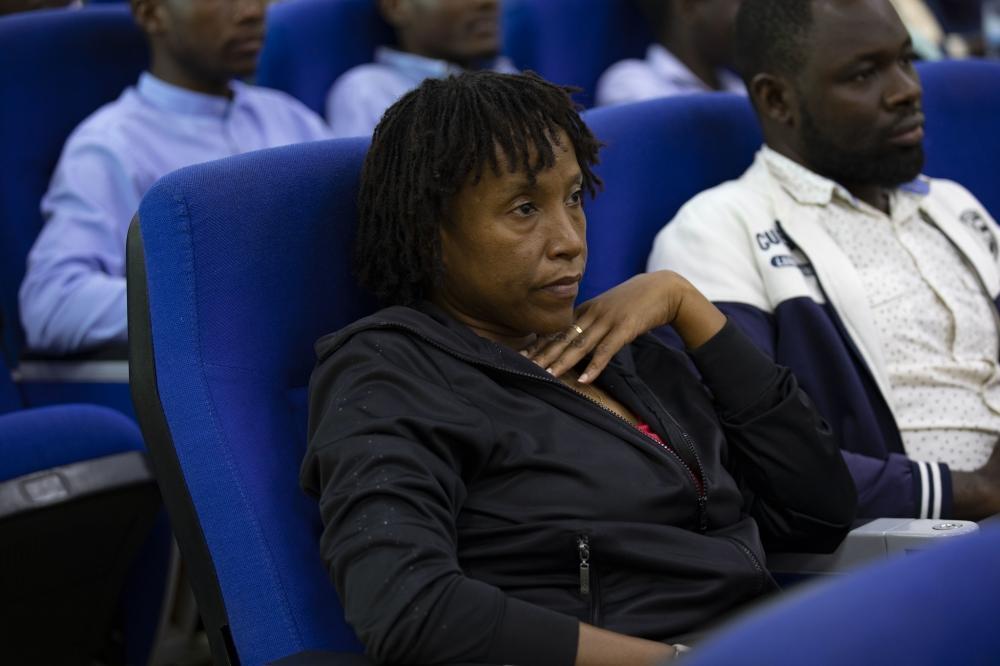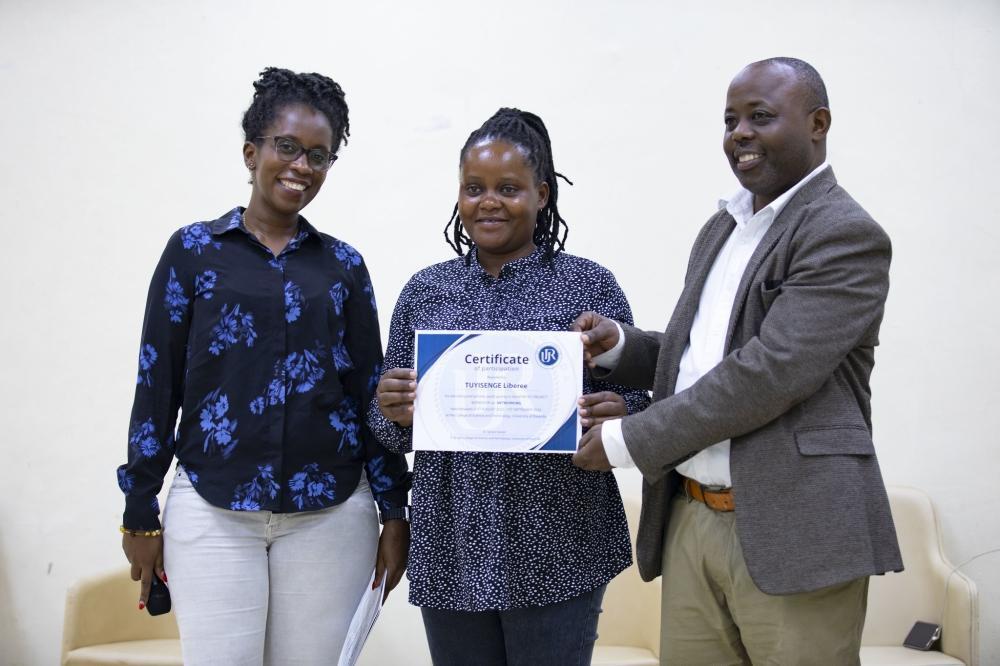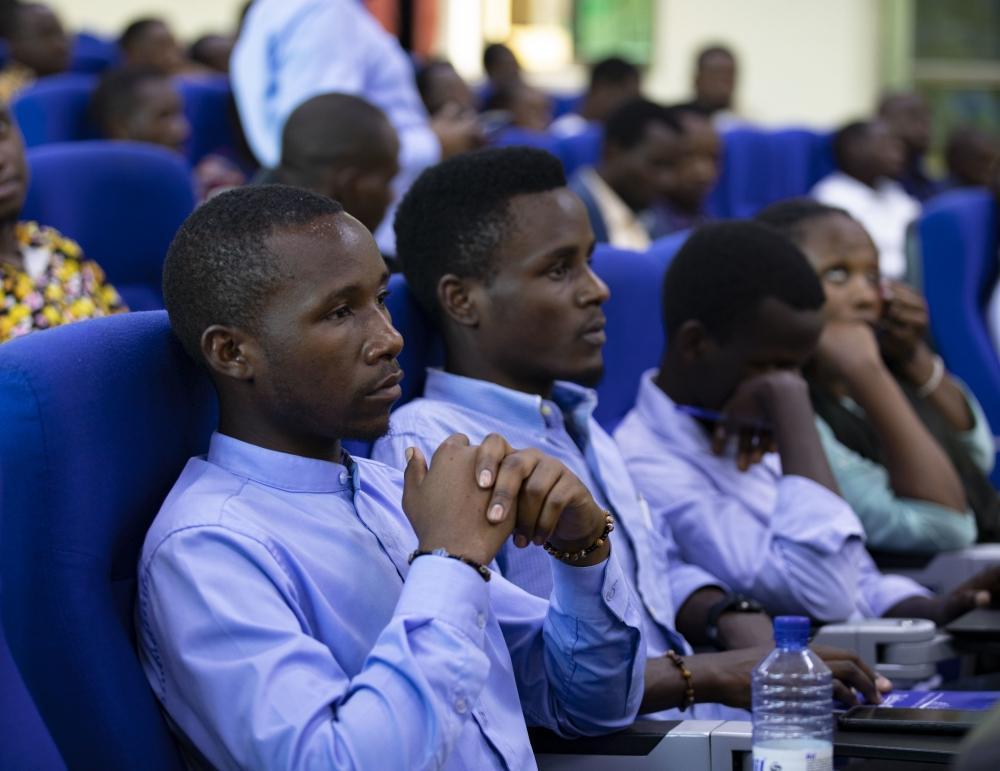Africa-Press – Rwanda. In a bid to equip professionals with essential skills for the digital age, the University of Rwanda (UR) conducted a series of training sessions focusing on emerging technologies. The programme, supported by UR African Engineering and Technology Network (Afretec) base funding project, offered seven specialised courses aimed at students, lecturers, and industry professionals.
Mastercard Foundation through Carnegie Mellon University-Africa supported six universities in Africa to establish Afretec, a pan-African collaboration of universities aimed at advancing digital transformation through building capacity, fostering research, and providing courses that students, graduates, and the general public may not have acquired while at school.
The six universities are University of Rwanda (UR), American University of Cairo, Wits University from South Africa, Carnegie Mellon Africa, University of Lagos, and University of Nairobi.
The short courses covered a range of topics namely; Artificial Intelligence and Machine Learning, Cybersecurity, Networking, Robotics and Drone Technology, Big Data Analytics and Visualization, Web services and API programming, and Embedded Systems and Programming. These courses aimed to provide participants with practical skills relevant to the evolving technological landscape.
A total of 385 trainees completed the courses and had a celebration event in a ceremony held on Friday, March 8. In a press interview, trainees shared their experiences and insights on what they gained from the training, specifically highlighting its practical relevance to their respective fields.
Eric Kazubwenge, a seed quality controller at Rwanda Forestry Authority, studied Big Data Analytics and Visualization. He stated: “Seed quality control requires data, and this course has enabled me to utilise data effectively by creating concise presentations for my colleagues. It introduced me to new techniques that streamline my work through visualization.”
Highlighting the importance of technology in data analysis, Kazubwenge added, “Technology significantly reduces the time required for data analysis and visualisation. However, there is a need for more practical training to enhance skills further. I hope for courses that offer certification in big data analytics, going beyond mere participation certificates.”
Similarly, Vanny Nicole Kayirangwa Katabarwa, an aeronautics engineer at RwandAir, lauded the Robotics and Drone Technology course for providing hands-on experience in programming and prototyping.
“When I saw they were offering a course in Robotics and Drone Technology, I knew I had to take it. As someone passionate about flying, it piqued my interest. Additionally, the fact that the course was offered for free was a rare opportunity in today’s expensive educational landscape.”
Through the programme, she has delved deeper into the practical applications of Arduino, an open-source electronics platform enabling users to construct digital devices. “Although I work in aviation, understanding robots and drones requires a different skill set. I wanted to gain a clear understanding of their distinctions. Through hands-on training and networking opportunities, I delved into practical experiments, such as programming air traffic controllers. Exploring tech languages like Arduino opened up new possibilities for me.”
Recognising the short duration of the course, Katabarwa stressed the value of fostering curiosity. She explained, “Even though the course only lasted two weeks, it sparked my interest in delving deeper into drone technology. I think introducing similar courses in secondary and primary schools can spark curiosity among young learners and contribute to Rwanda’s progress in this field.”
“The Afretec short courses programme at the University of Rwanda benefits students and staff. The programme also extends its benefits to graduates, alumni, and employees in both the public and private sectors and in civil society, by offering training to enhance their expertise and keep them abreast of emerging trends in technology,” Dr Pierre Bakunzibake, Afretec Project Lead and senior lecturer at UR told the media.
“Recognising the limitations of the traditional curriculum in covering all emerging pertinent topics, especially those relevant to industry demands, the Afretec programme contributes to filling the gap by providing supplementary training and bridge courses contributing to the overall growth and competitiveness of the participants,” he added.
Dr Jennifer Batamuliza, Deputy Project Lead and Career Path Lead at Afretec and Lecturer at the University of Rwanda, stated: “Equipping individuals with the necessary skills for success is our primary focus. Certification is crucial as it allows individuals to demonstrate their abilities in the workplace and even pursue entrepreneurial ventures. We aim to bridge the gap between the skills acquired at the university and those required in the workplace, thus enhancing productivity. It’s vital to recognise that the skills demanded by industries today differ significantly from those needed 15 years ago.”
The programme, supported by UR African Engineering and Technology Network (Afretec) base funding project, offered seven specialised courses aimed at students, lecturers, and industry professionals.
The training aimed at advancing digital transformation through building capacity, fostering research, and providing courses that students, graduates, and the general public
For More News And Analysis About Rwanda Follow Africa-Press

